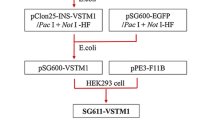Abstract
The potential role of transforming growth factor-β in in vivo resistance was examined by administration of transforming growth factor-β-neutralizing antibodies to animals bearing the EMT-6/Parent tumor or the antitumor alkylating resistant tumors, EMT-6/CTX or EMT-6/CDDP. Treatment of tumor-bearing animals with anti-TGF-β antibodies by intraperitoneal injection daily on days 0–8 post-tumor cell implantation increased the sensitivity of the EMT-6/Parent tumor to cyclophosphamide (CTX) and cisplatin (CDDP) and markedly increased the sensitivity of the EMT-6/CTX tumor to CTX and the EMT-6/CDDP tumor to CDDP, as determined by tumor cell survival assay. Bone marrow granulocyte-macrophage colony-forming units (CFU-GM) survival was determined from these same animals. The increase in the sensitivity in the tumors upon treatment with the anti-TGF-β antibodies was also observed in increased sensitivity of the bone marrow CFU-GM to CTX and CDDP. Treatment of non-tumor-bearing animals with the anti-TGF-β regimen did not alter blood ATP or serum glucose level but did decrease serum lactate levels. This treatment also decreased hepatic glutathione, glutathione S-transferase, glutathione reductase, and glutathione peroxidase in non-tumor-bearing animals by 40–60% but increased hepatic cytochrome P450 reductase in these normal animals. Animals bearing the EMT-6/CTX and EMT-6/CDDP tumors had higher serum lactate levels than normal or EMT-6/Parent tumor-bearing animals; these were decreased by the anti-TGF-β regimen. Treatment of animals bearing any of the three tumors with the anti-TGF-β regimen decreased by 30–50% the activity of hepatic glutathione S-transferase and glutathione peroxidase, and increased by 35–80% the activity of hepatic cytochrome P450 reductase. In conclusion, treatment with transforming growth factor-β-neutralizing antibodies restored drug sensitivity in the alkylating agent-resistant tumors, altering both the tumor and host metabolic states.
Similar content being viewed by others
Author information
Authors and Affiliations
Additional information
Received: 27 January 1995/Accepted: 9 June 1995
Rights and permissions
About this article
Cite this article
Teicher, B., Holden, S., Ara, G. et al. Transforming growth factor-β in in vivo resistance. Cancer Chemother Pharmacol 37, 601–609 (1996). https://doi.org/10.1007/s002800050435
Issue Date:
DOI: https://doi.org/10.1007/s002800050435




